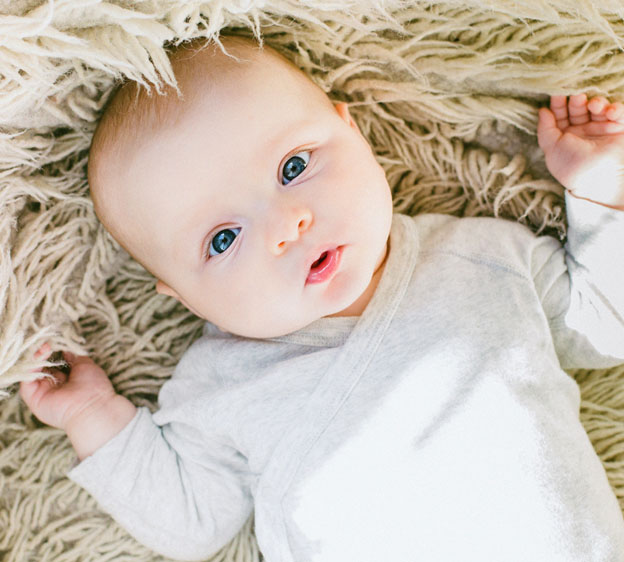
There are so many things to think about as a new parent. Your baby is totally dependent on you and sometimes you may feel like you don’t know what s/he needs. Certified Help, Understanding and Guidance for Young Families (aka HUG) instructor Roxanne Davis, MPH, offers the following advice.
Why is my baby crying so much?
 Crying is one of the ways your baby communicates. Some babies naturally "talk" a lot while others are quieter and easier to comfort. Full-term babies increase their crying at 2 weeks of age, and crying typically peaks at 6 weeks. Knowing that this is natural and learning ways to comfort your baby will help during these periods of transition.
Crying is one of the ways your baby communicates. Some babies naturally "talk" a lot while others are quieter and easier to comfort. Full-term babies increase their crying at 2 weeks of age, and crying typically peaks at 6 weeks. Knowing that this is natural and learning ways to comfort your baby will help during these periods of transition.
How can I help my baby learn and grow?
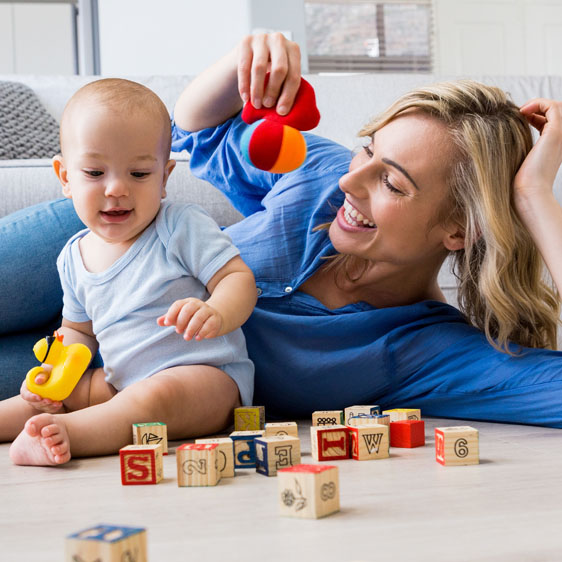 Playing with your baby is important for physical, cognitive, social and emotional growth. It helps him/her develop movement control, learn about the world, bond with you and shows how to socialize in a healthy way. Explore different ways to play with your baby from the very beginning.
Playing with your baby is important for physical, cognitive, social and emotional growth. It helps him/her develop movement control, learn about the world, bond with you and shows how to socialize in a healthy way. Explore different ways to play with your baby from the very beginning.
How can I tell if my baby is overstimulated?
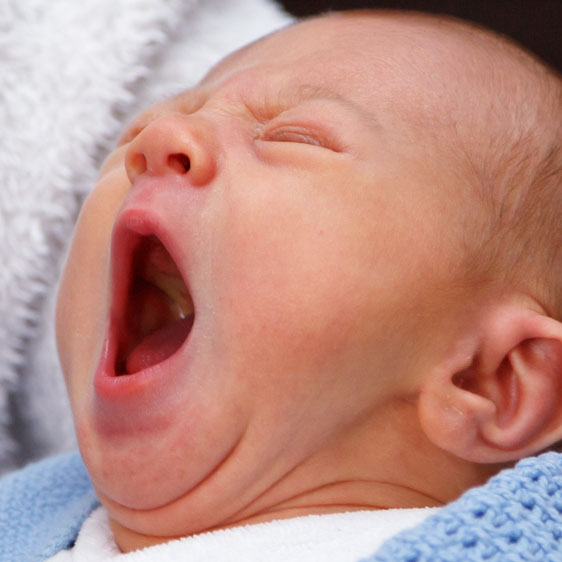 Babies speak with body language and behavior. By learning more about the signs to watch for, you will better understand overstimulation and be able to help your baby through it.
Babies speak with body language and behavior. By learning more about the signs to watch for, you will better understand overstimulation and be able to help your baby through it.
How do I know when my baby is ready to eat?
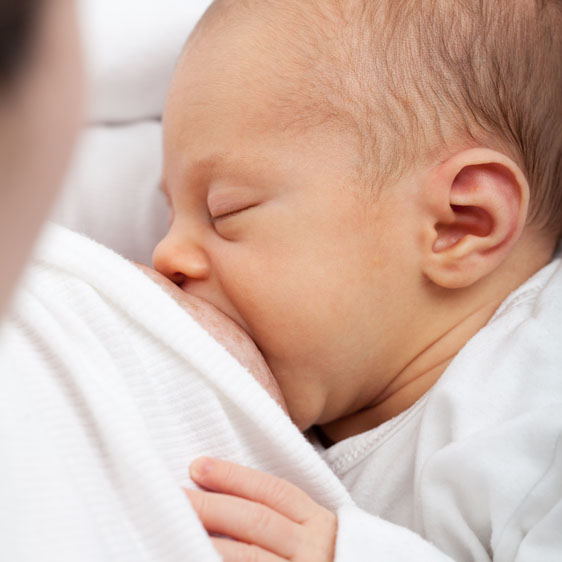 Newborns show signs of hunger in a few different ways. Your baby may bring his/her hand(s) to mouth, exhibit a sucking reflex, wriggle and squirm or vocalize by fussing or crying. These are typical ways that infants indicate they are ready to eat. It is normal for new parents to need time before they can differentiate between the cues that their baby is using to communicate.
Newborns show signs of hunger in a few different ways. Your baby may bring his/her hand(s) to mouth, exhibit a sucking reflex, wriggle and squirm or vocalize by fussing or crying. These are typical ways that infants indicate they are ready to eat. It is normal for new parents to need time before they can differentiate between the cues that their baby is using to communicate.
How much can my baby see and hear?
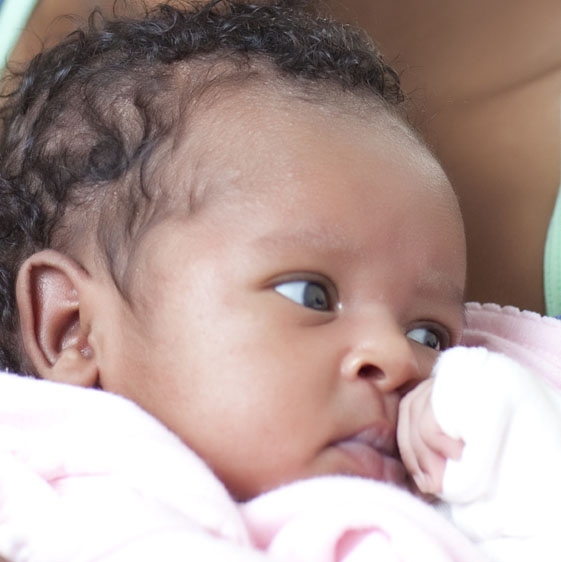 A newborn can pick out a picture of his/her mother as early as 4 hours old. Babies will turn to their dad’s voice more quickly than to any other man’s. Newborns can best see things that are about 10 inches from their face. They socialize with you by watching your face and exchanging looks with you. They love it when you sing and talk to them. By learning ways to play with your baby, you not only help him/her learn but you also enhance your connection, helping him/her to develop strong attachments and promoting healthy social development.
A newborn can pick out a picture of his/her mother as early as 4 hours old. Babies will turn to their dad’s voice more quickly than to any other man’s. Newborns can best see things that are about 10 inches from their face. They socialize with you by watching your face and exchanging looks with you. They love it when you sing and talk to them. By learning ways to play with your baby, you not only help him/her learn but you also enhance your connection, helping him/her to develop strong attachments and promoting healthy social development.
When will my baby develop his/her personality?
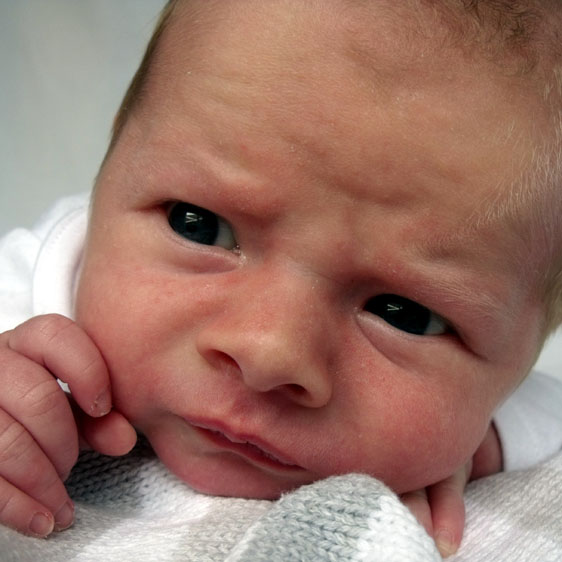 All babies are different and they are born with their own temperaments and personalities. Some are naturally quiet and relaxed while others are energetic and active. Some are sensitive to their surroundings and others are not. You are not responsible for creating your baby’s personality but rather for learning who your child is and how best to respond to him/her.
All babies are different and they are born with their own temperaments and personalities. Some are naturally quiet and relaxed while others are energetic and active. Some are sensitive to their surroundings and others are not. You are not responsible for creating your baby’s personality but rather for learning who your child is and how best to respond to him/her.
Who is a good resource for understanding what is going on with my baby?
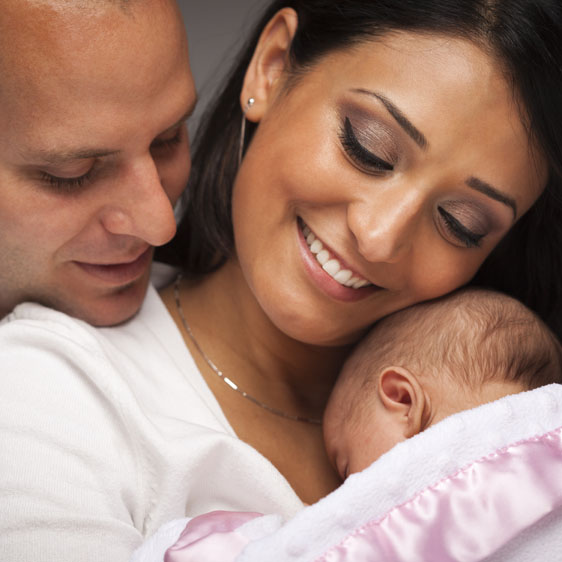 You are. By watching and interacting with your baby, you continue to increase your understanding of what s/he is communicating. You are the expert s/he wants and needs!
You are. By watching and interacting with your baby, you continue to increase your understanding of what s/he is communicating. You are the expert s/he wants and needs!
Becoming a parent is an exciting experience, but with it can come with insecurity about parenting skills. Attending Beaufort Memorial’s Baby University classes can help.
